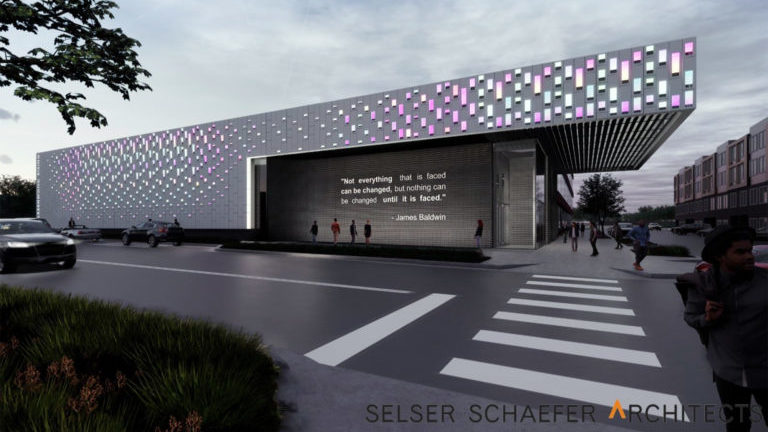By Diana Chandler
Baptist Press
A hundred years after a horrific massacre, Deron Spoo hopes to set the foundation for a new narrative.
The senior pastor of First Baptist Church, Tulsa, has studied the 1921 Tulsa Race Massacre, in which as many as 300 Blacks were killed and 35 blocks of Black-owned homes and businesses were reduced to ashes over a two-day period. First, Tulsa, was among white congregations that helped house more than 10,000 displaced Black residents.
But in the Sundays following the 1921 Tulsa Race Massacre, comments from pastors of those same churches were not indicative of the aid extended.
“There were newspaper articles that share what those pastors said the following Sundays in their pulpits, and it was not good,” Spoo said. “It was offensive, it was racist and those are a matter of public record.”
His answer: the informative and inspirational Tulsa Race Massacre Prayer Room for the church and community.
The room, open February through June 1, will offer a space for 121 days of intensive prayer as the 1921 Tulsa Race Massacre Centennial Commission holds months of events in advance of the official June 1 centennial commemoration.
“I think it’s important for our church to be a part of this project to send a message into the future, but also for today,” Spoo said, “that racism doesn’t have a place in the heart of the church, nor in any follower of Jesus.”
Fellow Southern Baptist pastor LeRon West, who leads Tulsa’s predominantly Black Gilcrease Hills Baptist Church, thinks the prayer room could foster reconciliation in Tulsa, which he describes as still divided.
“To have a place where different people can come in and pray, and pray together … that goes a long way because relationships happen as we’re in the proximity of one another and begin to see each other that way,” West said. “And the church has to lead out in that. If the church is divided, the world has no chance.”
While Tulsa is actively discussing racial reconciliation as the centennial approaches, Spoo believes only God can change human hearts in a way that will unite the community.
“We can solve a lot of problems if we communicate together, but I think we can solve more problems if we communicate with God,” Spoo said. “So while we’re talking about this, why don’t we include God in the conversation?”
First, Tulsa, worked with the Tulsa Historical Society in establishing the prayer room that Spoo humbly describes as museum quality.
Sections include historical accounts and images, newspaper reports, written prayers and prayer points, four prayer stations with audio guidance, and a joint anti-racism statement signed by Spoo and fellow pastors of downtown churches.
“I ask people to stop and pray against the spirit and sin of racism in our culture and against the spirit and sin of racism in the church … and then the spirit and sin of racism in our lives,” Spoo said. “The only person who can change the human heart is God. I might not be able to change the culture of Tulsa, but I am responsible for changing my heart and making sure it is right before God and loving toward other people.”
At the end of the self-guided tour, participants are encouraged to learn about the massacre’s survivors and to donate to the Greenwood Rising history center, with First, Tulsa, committed to matching up to $5,000 in contributions. Names of supporting organizations will be preserved on bricks or plaques at the center.
“I just think it’s important for posterity to have First Baptist Tulsa’s name on that, to say we’re a part of this,” Spoo said. “We can’t change what happened in 1921, but we certainly do have a say in what happens in 2021.”
EDITOR’S NOTE — This article was originally published by Baptist Press, news service of the Southern Baptist Convention. This article also appears in TAB News, a digital regional Baptist publication. For more information or to subscribe to the TAB News app, visit tabonline.org/TAB-News-app.






Share with others: